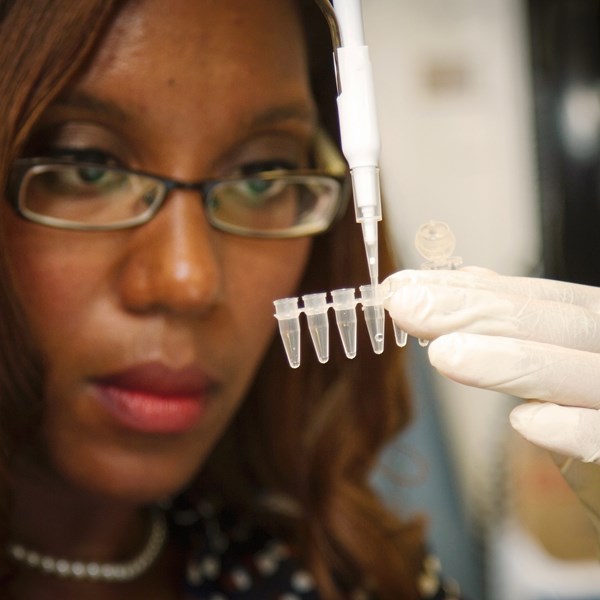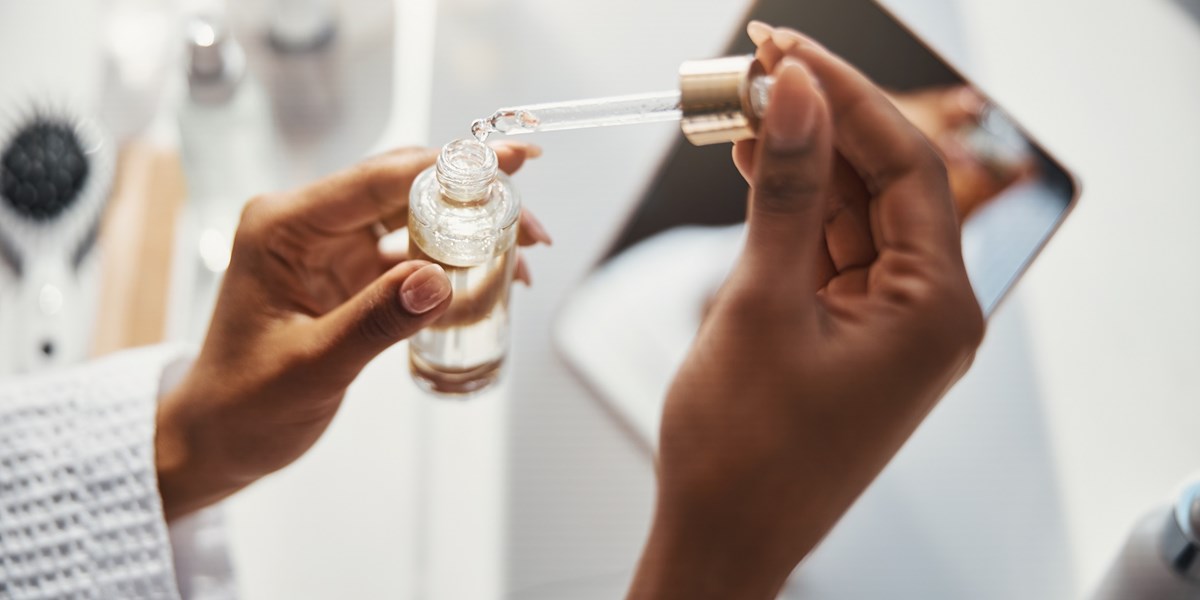With effect from 1 January 2021, UK legislation has been amended to incorporate EU law on Supplementary Protection Certificate (SPC)s into United Kingdom (UK) national law, and to make various adjustments to it. While the previous systems and processes largely remain the same, there are some key changes that users of the system should be aware of.
We tabulate the key changes to SPC law, and discuss some of the main implications in the FAQs below.
WHAT ARE SPCs?
SPCs are national rights that extend patent protection in Europe for up to five and a half years to compensate for time spent obtaining marketing approval for medicinal and plant protection products.
Within the EU, they are governed by EU Regulation (EC) No 469/2009 (for medicinal products) and Regulation (EC) No 1610/96 (for plant protection products). It is possible to obtain a six-month extension to SPCs for medicinal products when clinical trials have been conducted in a paediatric population in accordance with EU Regulation (EC) No 1901/2006. Some non-EU countries also offer SPCs under national law, including Norway, Iceland and Switzerland.
WHY ARE UK SPCs AFFECTED BY BREXIT?
On 31 January 2020, the UK left the EU. Under the terms of the EU-UK Withdrawal Agreement, the UK continued to apply EU law during the transition period, but this period came to an end on 31 December 2020 and so EU law no longer applies in the UK.
Under the European Union (Withdrawal) Act 2018, the UK incorporated all EU SPC law into UK national law. Subsequent adaptations were made to enable the law to function in its new UK context, including changes necessary to accommodate new marketing authorisations that cover only part of the UK (Great Britain or Northern Ireland) as a result of the Northern Ireland Protocol.
WHAT HAPPENS TO UK SPCs ALREADY GRANTED AND UK SPC APPLICATIONS ALREADY PENDING AS OF 1 JANUARY 2021?
UK SPCs (included those extended by a paediatric extension) that were granted before 1 January 2021 will continue to be valid for the whole of the UK and their expiry date will be unchanged.
Pending UK SPC applications and requests for paediatric extensions filed before 1 January 2021 will continue to be prosecuted as normal and will provide the same protection for the whole of the UK.
WHAT HAS CHANGED FOR NEW SPC APPLICATIONS FROM 1 JANUARY 2021?
From 1 January 2021, the SPC system in the UK will operate largely as before. Most of the changes to the retained EU law simply make it compatible and consistent with UK law.
New SPC applications can generally still be filed at the UKIPO according to the same deadline (i.e. within the later of six months from the grant of the first marketing authorisation in the UK or six months from the grant of the basic patent), and the fees payable will remain the same. We address below some particular aspects that have changed in respect of UK SPCs and SPC applications.
New UK marketing authorisations
As a result of the Northern Ireland Protocol, the regulation of medicines and plant protection products in Northern Ireland (NI) is still governed by EU law, while the authorisation of such products in Great Britain (GB; England, Wales and Scotland) is governed by UK law.
This has the effect of introducing three types of MA within the UK, namely MAs for UK, MAs for GB only and MAs for NI only.
Given that applicants for UK SPCs must have a valid marketing authorisation in the UK, new legislation (The Supplementary Protection Certificates (Amendment) (EU Exit) Regulations 2020; Statutory Instrument (SI) 2020/1471) has been enacted to reflect these new categories of MA.
Under the new law, applicants will be able to file a UK SPC application based on any of a UK MA, a GB MA or a NI MA.
As before, the MA must be a valid MA to place the product on the market in the territory concerned and must be the first MA to place the product on the market in that territory.
Territorial extent of protection
In view of the possibility of MAs covering only part of the UK, the new legislation means that while SPCs will remain UK-wide rights, their territorial extent of protection will extend only to the territory or territories where the MA or MAs allow the product to be sold.
For example, an SPC based solely on a GB MA will provide protection only in GB, and an SPC based solely on a NI MA will provide protection only in NI.
It is, however, possible to extend the SPC to cover the additional territory provided that an MA is granted in that territory before the SPC takes effect. For example, if an SPC is originally based on an NI MA for the product, the protection conferred will initially extend to only NI, but if a GB MA is granted for the product before the SPC takes effect, it will be possible to extend the protection to also cover GB, and vice versa.
To extend the territorial coverage of an SPC, applicants must notify the UKIPO using Form SP6 within six months of the grant of the later MA and before the patent expires. Therefore, it is important for applicants to closely follow ongoing regulatory developments to ensure that all opportunities for extending supplementary protection are not missed.
Deadlines for filing
As before, if the MA is granted before the basic patent is granted, the SPC application may be filed within six months of the date on which the patent is granted.
However, if the MA is granted after the basic patent is granted, the SPC application must be filed within six months of the grant date of the UK, GB or NI MA, and where there is more than one such MA granted, within six months of the earliest of such MAs.
Calculation of term
The duration of both old and new UK SPCs will still be determined by reference to the earliest MA in the European Economic Area (EEA) and the UK. This means that if an MA is granted in an EEA member state before grant of the UK MA, the term of the UK SPC will run from the earlier EEA MA even though marketing of the product in the UK would not be possible until the UK MA is granted.
Paediatric extensions
The six-month paediatric extension of SPCs for conducting paediatric studies in accordance with a paediatric investigation plan (PIP) will still be available. The same deadline applies (i.e. two years before expiry of the SPC), and the fees payable remain the same.
The main difference is that it is no longer a requirement for new requests for a paediatric extension to show that the product is authorised in all EEA member states, only that it is authorised in the UK. For products where the PIP has not been completed in all EEA states, this may present a new opportunity for securing a UK paediatric extension which would not otherwise have been possible.
In addition, as with SPCs, the protection conferred by UK paediatric extensions will cover only the territory or territories within the UK where the MA has been updated to reflect the completed PIP studies. For example, if only the GB MA has been updated in this regard, the paediatric extension would only extend to GB, even though the base SPC may also cover NI by virtue of an NI MA. It is, however, possible to extend the coverage to the rest of the UK if the conditions for granting the extension have been met for the other MA and a request is filed by the deadline of two years prior to expiry. Again, it is important for IP and regulatory departments to be fully aligned to ensure that no opportunities are missed here.
ARE THERE ANY CHANGES TO THE MANUFACTURING WAIVER?
As of 1 July 2019, a new EU “manufacturing waiver” came into force to allow medicinal products covered by an SPC in one or more EU countries to be manufactured by third parties in those countries solely for the purpose of (i) exporting to third countries while the SPC is in force, and/or (ii) storing it within the last six months before SPC expiry in order to place the product on the EU market after SPC expiry, subject to certain conditions.
Under the EU legislation, the waiver is applicable to SPCs applied for on or after 1 July 2019, but does not apply to SPCs that were already in force on 1 July 2019. From 2 July 2022, it will also apply to SPCs that were applied for before 1 July 2019, but that had not taken effect before 1 July 2019.
The new UK legislation (The Intellectual Property (Amendment etc.) (EU Exit) Regulations 2020; SI 2020/1050) retains the manufacturing waiver in UK law and largely keeps the status quo. Hence, if a product has SPC protection in the UK, manufacturing under the waiver will still only be permitted where it is for export to a country outside the UK and the EU or for stockpiling in preparation for placing the product on the market in the UK or EU.
Given that the UK is a third country for the purposes of the “EU manufacturing waiver” whereas the EU is included for the purpose of the “UK manufacturing waiver”, this means that if a medicine does not have SPC protection in the UK but does have SPC protection in one or more EU countries, the “EU manufacturing waiver” will allow third parties to manufacture in those EU countries for export into the UK, whereas if a medicine does not have SPC protection in the EU but does have SPC protection in the UK, the “UK manufacturing waiver” will not allow third parties to manufacture in the UK for export to the EU. The “UK manufacturing waiver” would therefore appear to be potentially less favourable to generic/biosimilar companies than the “EU manufacturing waiver”.
IS PREVIOUS CASE LAW FROM THE COURT OF JUSTICE OF THE EUROPEAN UNION STILL VALID FOR UK SPCs? WILL UK SPC LAW CHANGE IN THE FUTURE?
The significant number of CJEU decisions relating to SPCs that were taken before 31 December 2020 have also been directly imported into UK law. This means that UK Courts will generally be required to interpret retained EU law in accordance with past CJEU case law. However, both the Supreme Court and the Court of Appeal are free to depart from such CJEU decisions if they consider it “right to do so”, and so the opportunity is there for UK courts to tread a different path in terms of how the law should be interpreted. Of course, this also presents new opportunities for applicants to try to direct precisely where this path leads to.
|
Article |
Table 1: Changes relating to new MAs (introduced by SI 2020/1471) |
| 2 - Scope | Any product that is the subject of a UK, GB or NI MA can be the subject of an SPC. |
| 3 - Conditions for obtaining a certificate | The MA upon which the SPC application is based can be a UK, GB or NI MA. The MA must be a valid MA to place the product on the market in the territory and must be the first MA to place the product on the market in that territory. |
| 5 - Effects of the certificate |
The protection conferred by the SPC will extend only to the territory within the UK where there is an MA that meets the requirements of Article 3 (i.e. a valid MA that is the first MA to place the product on the market in the territory) and which has been issued before the SPC takes effect. The protection can cover an additional territory if an MA for the product which meets the requirements of Article 3 is granted in that territory after an application for an SPC is filed, but before the SPC takes effect. For example, if an SPC is originally based on an NI MA for the product, the protection conferred will initially extend to only NI, but if a GB MA is granted for the product before the SPC takes effect, it will be possible to extend the protection to also cover GB, and vice versa. The later MA must meet the requirements of Article 3 as of its date of grant. In the same way that SPC applications cannot be filed after patent expiry, the ability to extend the territorial protection of an SPC will also end at the point that the SPC takes effect (see also new Article 13A below). |
| 7 - Application for a certificate | An SPC application must be filed within six months of the grant date of the UK, GB or NI authorisation, and where there is more than one such MA granted, within six months of the earliest of such MAs. In other words, while the territorial protection of an SPC may extend to an additional territory if an MA for the product is granted in that territory after an application for an SPC is filed, the application must nevertheless be filed within six months of the earliest MA within the UK. It remains the case, however, that if the MA is granted before the basic patent is granted, the SPC application may be filed within six months of the date on which the patent is granted. |
| 8 and 9 - Content and lodging of the application for a certificate | The number and date of the one or more UK, GB or NI MAs should be provided and published. For requests for paediatric extensions, there are requirements to provide and publish information on the territory in respect of which the statement indicating compliance with an agreed completed paediatric investigation plan (PIP) has been made. |
| 11 - Publication | Any MAs for the same product covering a different part of the UK that have been granted after the date of filing the SPC application but before the SPC takes effect, and that have been notified to the UKIPO before grant of the SPC, will be included in the notification of grant of the SPC. |
| 13 - Duration of the certificate | A paediatric extension will only provide protection in the territory where a statement indicating compliance with an agreed PIP has been made. Thus, if only one MA associated with the SPC contains the necessary statement of compliance, the extension will only provide protection in the territory of that MA, even if the territorial extent of the SPC is wider. The article is also amended to clarify that a paediatric extension cannot provide protection in a part of the UK where the SPC does not. |
| [NEW] 13A - Authorisation granted after submission of an application for a certificate | Provides a mechanism for notifying the UKIPO of an additional MA that covers a different part of the UK to that of the original MA on which the SPC application is based. The UKIPO can be notified of this either during the pendency of the SPC application or once the SPC has been granted, but always within six months of the date of grant of the MA and before the expiry of the basic patent. Failure to meet this deadline will mean that the protection conferred by the SPC will not be extended to the territory covered by the additional MA. Such notifications are to made on Patents Form SP6 and will be published for the benefit of third parties. |
| [NEW] 13B - Extension of the duration of a certificate | Provides a mechanism by which a further request can be made for a paediatric extension to also provide protection in the territory of another MA associated with the SPC if the conditions for granting the extension have been met for that MA. Thus, an extension of the duration of an SPC in respect of a GB authorisation may be extended to include NI, and vice versa. Such requests should be filed before the normal deadline of no later than two years before expiry of the SPC. |
| 14 - Expiry of the certificate | The SPC will lapse following the withdrawal of all UK, GB and NI MAs for the product. If only a UK, GB or NI MA is withdrawn, but one or more such MAs remain valid, the protection conferred by the SPC will no longer extend to the territory covered by the withdrawn MA (as from its date of withdrawal), but shall continue in respect of the territory covered by any remaining MA. |
| 17 - Notification of lapse or invalidity | Any limitation of the territorial extent of an SPC following a withdrawal under Article 14 will be published. |
|
Article |
Table 2: Changes addressing inoperabilities arising from retention of EU law and relating to EU manufacturing waiver (introduced by SI 2019/801 and SI 2020/1050) |
| 1 - Definitions |
Some additional terms are newly defined, including “court” in respect of the different UK constituent countries. The UK’s Human Medicines Regulations 2012 have been amended to incorporate the provisions of Article 36 of Regulation (EC) No 1901/2006 relating to medicinal products for paediatric use. The UK retained version of Regulation (EC) 469/2009 has thus been amended to refer to the UK’s Human Medicines Regulations 2012 in respect of all new applications for paediatric extensions for medicinal product SPCs filed on or after IP completion day. In relation to the manufacturing waiver (see Article 5 of Regulation (EC) 469/2009), the definition of “maker” has been restricted to a person established in the UK and to match the new wording for the geographical scope of the export for the manufacturing waiver outlined in amended Article 5 (below). |
|
2 - Scope 3 - Conditions for obtaining a certificate |
References to the EU Directives have been removed from these Articles, which now refer to UK* authorisations [*references to UK authorisations in Table 2 become UK, GB or NI authorisations in the retained version of Regulation (EC) 469/2009 and GB or NI authorisations in the retained version of Regulation (EC) 1610/96 under SI 2020/1471; see Table 1 above]. |
|
5 - Effects of the certificate Annex-I - Logo Annex-Ia - Standard Form [all amendments made to Regulation (EC) 469/2009 only] |
The following changes have been made in relation to the manufacturing waiver for medicinal products in Regulation (EC) 469/2009: References to making in the Union or to the Member State of making have been replaced with corresponding references to the UK. The geographic area of the waiver for the export and storage aspects has been amended in order to maintain the current markets for export and storing (stockpiling)vii, namely for export “outside the United Kingdom, the Isle of Man and the Member States of the European Union” and for storing “to place the product… on the market of the United Kingdom, the Isle of Man or one or more Member States of the European Union after expiry of the corresponding certificate”. Hence, the waiver will still not permit manufacture in the UK for the purpose of export to any EU Member State, except that the waiver will still permit manufacture in the UK in the last six months of the SPC for storing before putting the product on the market in the EU after expiry of both the UK SPC and the corresponding SPC in the destination country. The maker must make all required notifications to the comptroller and inform the certificate holder. New Patents Form SP5 replaces the standard form in Annex-Ia of the Regulation and must be used when the maker notifies the comptroller. The effect of any notifications made before IP completion day will be preserved. Regarding the identification of products manufactured under the export aspect of the manufacturing waiver (i.e. for export outside the UK, the Isle of Man and the EU), the EU export logo in Annex-I has been replaced with the words “UK export”, which must be affixed to the outer packaging (and immediate packaging, where feasible) so as to be sufficiently clear and visible to the naked eye. The Secretary of State is given powers to amend the requirements in relation to the manner and form (e.g. design and colour) of the words “UK export” that must be affixed, by statutory instrument. Under the new transitional provisions, any product that has been marked with the EU export logo before IP completion day does not require relabelling. It will no longer be necessary to specify the Member State in which the making or storing is to take place, or any details regarding the Member State of the first related act, because the scope of the retained EU law will be restricted to the UK. The present EU requirement for products intended for export to third countries not to bear an ‘active unique identifier’ has been deleted. The dates of entry into force of the waiver are unchanged. |
|
8 - Contents of the application for a certificate 9 - Lodging of an application for a certificate |
The application shall contain the number and date of the UK* authorisation; the amended Regulation also maintains the present requirement to provide the number and date of the earliest EEA authorisation if it was granted prior to the authorisation in respect of the UK*. Corresponding changes have been made to subsequent references to authorisations. For new medicinal product SPC paediatric extension applications filed on or after IP completion day, the former requirement to provide proof of corresponding authorisations in all EU Member States has been removed. The provision for Member States to be able to require an application fee has been removed (now covered by an amendment to Article 10). Applications for SPCs and for paediatric extensions shall be lodged with the comptroller (all subsequent references to the authority referred to in Article 9(1) also read “the comptroller”). |
|
10 - Grant of the certificate or rejection of the application for a certificate |
Applications will be rejected if the application or the product to which it relates does not meet the conditions laid down in the Regulation or any prescribed fee is not paid, but the applicant is still given the opportunity to rectify the irregularity, or to settle the fee, within a stated time. The option for Member States to grant an SPC without examining the requirements of Art. 3(c) and (d) of Regulation (EC) 469/2009 and Art. 3(1)(c) and (d) of Regulation (EC) 1610/96 have been removed. |
|
12 - Annual fees 14 - Expiry of the certificate |
Article 12, which only contained the provision for Member States to be able to require the certificate to be subject to annual fees, has been deleted and replaced with reference to a ‘prescribed fee’ in amended Article 14. |
|
13 - Duration of the certificate |
SPC term beyond patent expiry is still calculated as the period between the patent filing date and the date of notification of the first authorisation in the area comprising the EEA and the UK, minus five years and to a maximum of five years. |
|
15 - Invalidity of the certificate |
Any person may submit an application or bring an action for a declaration of invalidity of the certificate before the comptroller or the court. |
|
18 {17} - Appeals 19 {18} - Procedure |
The express provisions in Article 18 of Regulation (EC) 469/2009 and Article 17(1) of Regulation (EC) 1610/96 that decisions of the comptroller or the court shall be open to the same appeals as those provided under national law against similar decisions taken in respect of national patents have been deleted. Nevertheless, Article 19(1) of Regulation (EC) 469/2009 and Article 18(1) of Regulation (EC) 1610/96 have been amended to indicate that, in the absence of procedural provisions in the Regulation, the procedural provisions applicable to the corresponding basic patent (as modified by section 128B of, and Schedule 4A to, the Patents Act 1977) shall apply to the certificate. |
|
20, 21 {19, 20} - Transitional Provisions |
The old transitional provisions in Articles 20 and 21 of Regulation (EC) 469/2009 and Articles 19 and 20 of Regulation (EC) 1610/96 have been deleted. However, Article 19a of Regulation (EC) 1610/96, corresponding to Article 20 of Regulation (EC) 469/2009, does not appear (yet) to have been deleted. This may have been an error in SI 2019/801. |
|
21a - Evaluation [Regulation (EC) 469/2009 only] |
The requirement for the manufacturing waiver to be evaluated (by the European Commission) at least every five years has been deleted without replacement. |
FURTHER READING
- Regulation (EC) 469/2009 concerning SPCs for medicinal products and Regulation (EC) 1610/96 concerning the creation of SPCs for plant protection products
- UKIPO Guidance: Changes to SPC and patent law from 1 January 2021
- UK Statutory Instrument 2020/1471 [The Supplementary Protection Certificates (Amendment) (EU Exit) Regulations 2020]
- UK Statutory Instrument 2020/1050 [The Intellectual Property (Amendment etc.) (EU Exit) Regulations 2020]
- UK Statutory Instrument 2019/801 [The Patents (Amendment) (EU Exit) Regulations 2019]







